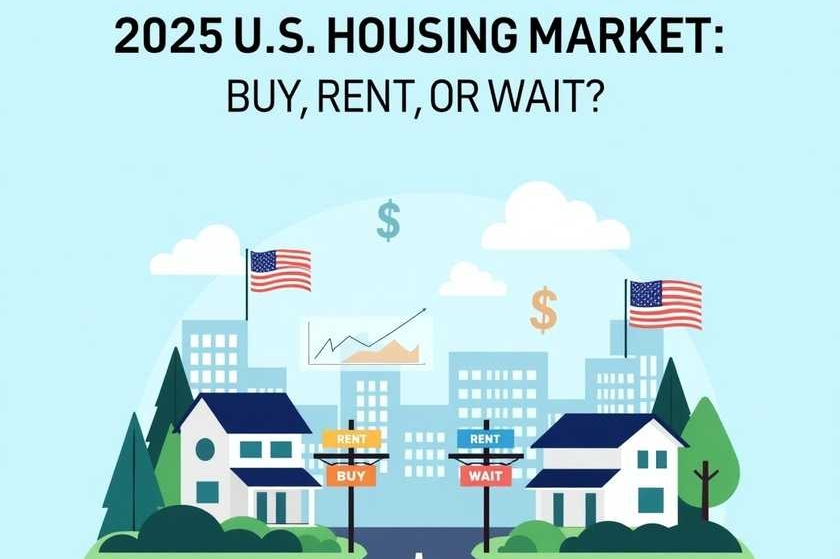The American housing market is once again at a crossroads. After years of soaring prices, fluctuating interest rates, and growing concerns over affordability, many Americans—especially first-time buyers and renters—are wondering what to do in 2025. Should you buy a home now, continue renting, or sit tight and wait for the market to shift?
Let’s break it down.
🔍 State of the 2025 U.S. Housing Market
As of spring 2025, the housing market remains a mixed bag:
- Mortgage rates are hovering around 6.5–7%, slightly down from 2023 highs but still elevated compared to pre-pandemic levels.
- Inventory remains limited in many urban and suburban areas, keeping prices resilient.
- Home prices have stabilized in some regions but continue to rise in high-demand states like Texas, Florida, and parts of the Northeast.
- Rent prices in major cities remain high, though the pace of increase has cooled due to new construction and shifting demand.
🏠 Should You Buy in 2025?
Pros:
- Prices have stabilized, reducing the fear of buying at a peak.
- You can build equity instead of paying rent indefinitely.
- There are more creative loan options (e.g., 3-2-1 buydowns, ARMs) to help offset high rates.
Cons:
- Mortgage rates are still high, raising monthly payments significantly.
- Homeownership comes with property taxes, maintenance, and insurance, which have all gone up.
- Buyers face tight inventory, which may lead to bidding wars in certain markets.
👉 Buy if you plan to stay in the same location for 5+ years, have strong credit, and can comfortably manage a higher monthly payment.
🏢 Is Renting the Smarter Choice Right Now?
Pros:
- Flexibility—ideal for those not ready to settle or who might relocate.
- No responsibility for maintenance or taxes.
- You avoid locking in a mortgage at today’s higher interest rates.
Cons:
- You’re not building equity.
- Rent prices are still relatively high, especially in major metros.
- Long-term renting can cost more than buying in certain areas.
👉 Rent if you need flexibility, are saving for a down payment, or expect rates to fall in the next 12–18 months.
⏳ What About Waiting It Out?
This might be a valid strategy—but it comes with risks.
Why wait:
- The Federal Reserve may cut rates later in 2025 or early 2026 if inflation continues to ease.
- More housing supply could come online, balancing demand and pricing.
- Your financial situation may improve, putting you in a better buying position.
Risks of waiting:
- Prices may rise further, especially in fast-growing regions.
- Rents could increase again, eating into your ability to save.
- You may miss current buyer incentives.
👉 Wait if you’re uncertain, your financial cushion needs work, or you’re betting on rate cuts.
📊 Bottom Line: Tailor the Decision to Your Life Stage
There’s no one-size-fits-all answer. For young professionals, it may make sense to rent longer and wait. For families looking for long-term stability, buying might offer financial and emotional security—even if rates are higher. If you’re in transition or uncertain, waiting is a smart move.
🧠 Final Thoughts
The 2025 U.S. housing market requires a thoughtful approach. It’s not just about timing the market—it’s about timing your life. Whether you decide to buy, rent, or wait, your financial health, job security, and future plans should guide your choice more than headlines or hype.
